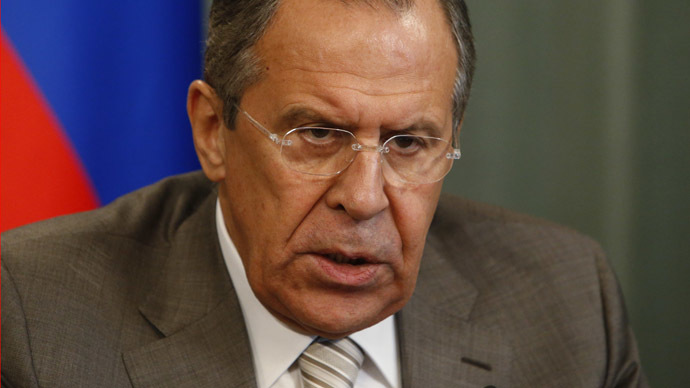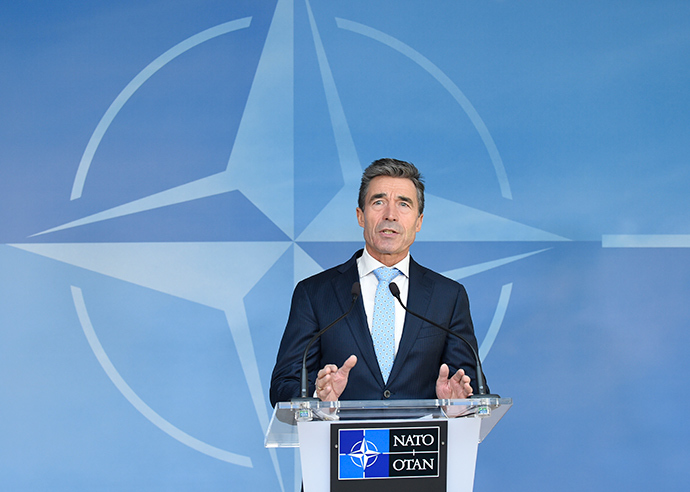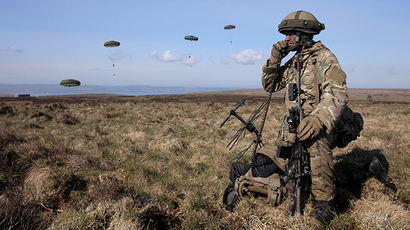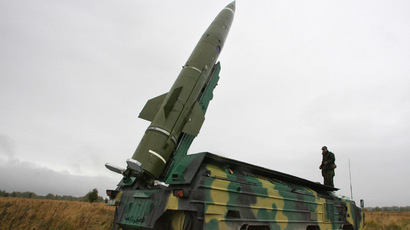'Ukraine a pretext': Russian FM accuses NATO of using conflict to justify its existence

The Ukraine crisis is just one pretexts being used by NATO to create tensions with Russia as the alliance seeks a reason to exist, Foreign Minister Sergey Lavrov said. As NATO expands, it tries “to drive” all Europeans under its “roof,” he said.
NATO “is looking for a new sense of existence,” Lavrov told Russia’s Itar-Tass news agency in an interview. “Russia turned up. If there was no Ukraine, I assure you, there would be another aspect of Russia’s inner or foreign politics used for speculations.”
Speaking about NATO, Lavrov recalled Russia’s urgent withdrawal of troops from Europe 20 years ago on August 31, saying that while there was no reason to rush, post-Soviet officials hoped to become “partners with the West and Europe.”
“And if there is no Warsaw Pact and the Soviet Union, and the troops had left, then what is NATO for here? Why bother with all the attributes that belong to the era of the Cold War?" he said.
“These hopes,” however, never came true and NATO keeps expanding, Lavrov said.
Previously Afghanistan “helped” NATO justify its being, but then it became clear that it only “pulls NATO solidarity to the bottom, because it is hopeless to do anything that the alliance was carrying out and the situation with the drugs threat and the drugs industry has worsened appreciably at least, if not for several orders.”
Thus NATO is looking for “a new reason to exist,” Lavrov said. “We have already seen that.”

“First, even Syria – disagreements with the West over Syria, when the West said that Assad can’t be a partner anymore, while we still adhered to the principle that you can’t just overthrow regimes, negotiations needed,” Lavrov said.
Eventually, he added, Russia was blamed for “everything that was happening in Syria.”
“Then it was Snowden. And there was also very big resentment and [attacks] on Russian policy,” Lavrov said. “After that simply because of the [Sochi] Olympic Games – and there it was not clear why: either because the Olympics did take place or because the West suspected [Russia] spent too much to host it, or somebody thought that it [Russia] was too successful and Russia won. I don’t know, but that prejudicial mood was there long before the Ukrainian events.”
Russia’s FM expressed regret over the alliance’s “continuing attempts” to “drive all Europeans under the NATO roof,” calling it a “short-sighted policy.”
“To my great regret, with all the good intentions that we have been given by Western partners in Europe and in America, after all this Cold War inertia and the inability to cope with the ongoing attempts to drive all Europeans under the NATO roof and so from there, from under the roof, [they] talk to us with the same hard voice,” said.
NATO’s policy, Lavrov said, is based on the desire to assert their will at any price.
“And for those who do not agree, they apply sanctions, in other words, take revenge, I know no other way to call it, but avenge for independence and for the unwillingness to follow the one-sided, unipolar world,” he added.















